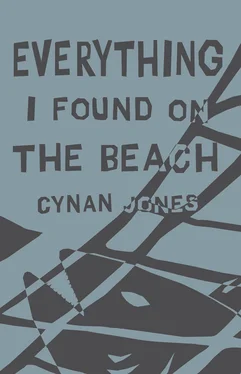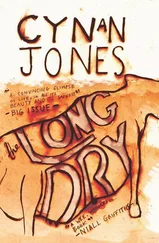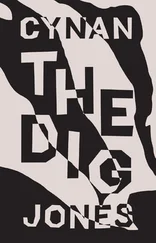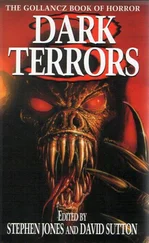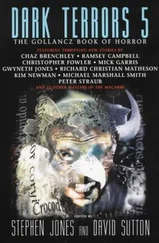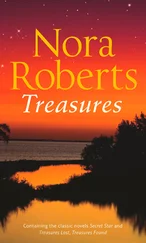He took the headlamp and checked it on and off and said in his head to remember to put it on charge in the morning. Then he shut the van and he opened the gate with the bag and the gun on his shoulder and went out onto the low slope at the top of the cliffs.
It was in that rich and very fertile moonlight that he went on, following the sheep track to the fence that demarked the land he was paid to shoot over. And though he could see the gathering banks of cloud shift in from the south, in that moonlight he knew that there would be less chance of rabbits, but that the huge, social power of that moon would draw in the fish way up the beach inside the big tide, and that if the fish were there, they would go into the net.
He swapped the bullets from the left pocket of his coat to his right in the final stage of his ritual and hung the game bag on the fence by the stile when he’d climbed over, with the split, blue polyethylene pipe over the barbed wire looking almost white in that moon.
He took out the gun and checked it rhythmically again and checked the barrel and screwed on the silencer and rested it against the stile and folded up the gun bag and pushed it into the game bag and clipped up the straps. Then he took up his things and went on into the wind, the breeze taking the smell of him and of his metal and bags back behind him, and herding the sounds of him off.
Below, the tide pounded with some sense of potential power contained, crushed languidly onto the beach. And though it hardly felt like anything, the breeze of that changing tide sounded heavier than it was, and he knew that where the rabbits would be, at the edge of the cliffs, it would be sloughing through the thorn, and in its loudness there would be cover for any noise he made.
He knew the rabbits would see him in the moonlight and he stopped high up the slope and shaded the rifle from glinting in the moon with his arm and looked up toward the thin approaching cloud, the stars pendant in the night. Of the few star constellations that he knew, he could see Orion and felt for it some affinity, this son of the sea god, the hunter again to the hunter witness.
When he drew his own constellations, as he had done as a child, it was a lobster he made out in these stars. If he had known that one of those stars was called Cara, he might have read into that something mysterious and read it as a message, or some sign. But he did not know, for all the years he had been looking at it and looking at her.
“Cara,” he thought. He had this fear inside that when the house was gone she might move away, that perhaps it was only this physical anchor that kept her here. He had the sense of this as if it was a knowledge, and something that was bound to happen. “I need them to be able to give to,” he thought. I couldn’t formalize it though. I need to be free to give. Feed the stray cat. If it gets to be something, they will expect reliability from me. I can’t face that dependence. I can’t face the responsibility of that.
“If I had one chance,” he thought. “One chance then I could change it round.”
He squatted before some gorse to break up his shape and could see from there, some hundred yards before him, the shape of the rabbits and picked them out from the molehills and humps of grass and easily when they moved by their moonlit tails. And they lopped and ate at the edge of the gorse and every now and then inquired into the night air as they finished the grass in their mouths with their rhythmic, vital chewing.
He tried to push the thoughts from his mind, the other ghosts of distraction. This is why he came here, this is why he did this: to reach some space. To push everything else from his mind.
A few fields over he could hear the bleats of the newly turned out lambs, calling for their mothers in the night, and the maternal patience in the answering mearghhs. The bad rain had kept off and it had been a good year for the lambs so far as the wet on their backs could bring them down very quickly. Somewhere, the plaintive call of a fox.
He knew this place well now. The field he was in was not farmed hard and it was scattered with stands of blackthorn and gorse, and sprawling piles of bramble. Everything had a bonsai quality to it, a denseness brought on by the constant, stunting grazing, the tough salt wind.
The first time he ever shot rabbits he was alone and it was with a shotgun and he had been looking for a long time with this growing sense he did not know how to do what he was doing. Then there were two in the top of the last field he came to. He instantly crouched. He could feel his heartbeat.
The field gently curved in the middle and the rabbits were beyond the crest some way on the downward slope. The field had been plowed and rolled and new shoots of barley were coming through in it. It was some hundred meters to the rabbits.
He held the gun in one hand and went almost crab-like on his bent legs and outstretched other arm, keeping his head low and trying to gauge where he reached the crest of the slope. The field was the highest part of the farmland and the view from it could take your breath sometimes. The barley shoots were all shaking in the breeze.
He had stopped for a while and had no idea what to do. He could see just above the crest and the two rabbits were between the rows of barley going from shoot to shoot. His heart was beating unreasonably and there was something in the feel and smell of the damp warm soil under his hands and the moisture from the earth coming through his trousers as he knelt that put him back to childhood. Doing this thing was a very new thing for him and he had no knowledge of what would happen next and in this the expectancy was very pure like a child’s.
Crouched as he was, he could hear the barley shoots rattle in the breeze. He had no idea what to do. As soon as he moved, the rabbits would go. There was a reason for shooting the rabbits. He wanted to cook them and he wanted that very much after hearing the old guy in the pub talk of the rabbit trains they used to send full of meat to London in the war; how no one seemed to use the things around them any more. It was a responsibility he wanted to take. He clicked off the safety.
When he stood up, the rabbits ran. What happened was very quick, but it had never left him. He shot the furthest one and it balled into the ground and went still and then he shot the second one mid-leap and it hit the soil and squealed and bucked into the air and he watched it as it hit the ground and volleyed again horribly into the air over and over, writhing and leaping down the field as if it was on a string held by some sick god, the way we dangle a toy for a cat. And he cracked open the gun and shook as he rushed for more cartridges walking almost hypnotized toward the rabbit, and he swallowed in the horror of it with some bizarre pragmatism he did not know he had.
And then the rabbit was on the ground and kicked up scuffs of soil it loosened as it fought and he leveled the gun and just held it there, sick with his own heartbeat, not knowing whether to fire or not, then the rabbit went still. The space around it was smashed and all the barley shoots were ripped out.
He collected the two rabbits and took them down and the old farmer showed him how to skin them and he never told anyone about the puppet rabbit.
He hoped very much when he shot again that it would not reoccur, and he had never again managed to hit two things with each barrel in succession like that. He was young and it had come to him as another big lesson in responsibility, but there was a relief in it. He understood it as a different type of responsibility.
It was an outward symbol of the capacity to take liability. It seemed manly, and yet it was a responsibility which ended with the result of one quick action. There was not the responsibility that comes with love or ambition, of having to maintain the determination and energy toward the thing you chose to achieve. The thing or person. This responsibility ended with the death you had decided to mete out. You didn’t have to risk watching the ideal decay.
Читать дальше
